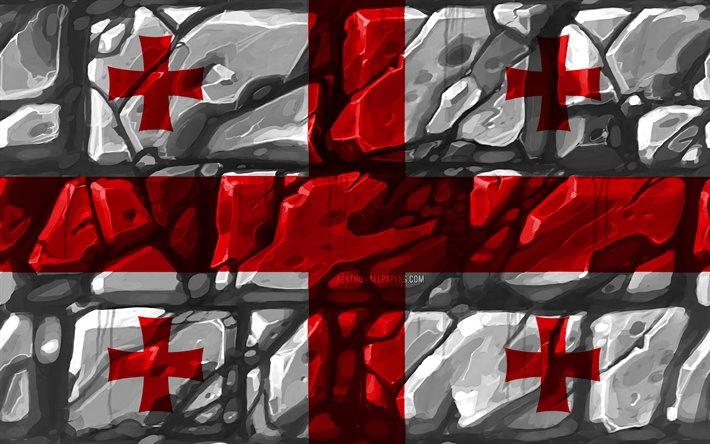How will anti-Russian sanctions affect Georgia?

Georgia did not join the anti-Russian sanctions, so as not to suffer the disruption of trade and economic relations, but these sanctions will still affect it, since trade turnover between the two countries is still high and largely consists of Russian exports. Petre Mamradze, head of the Institute for Management Strategy, and political scientist Giorgi Nodia told about this in an interview with Vestnik Kavkaza correspondents.
Petre Mamradze pointed out the Russian exports' predominance in trade contacts between the two countries. "Although in percentage terms it is not so much, but still Georgia buys energy resources in Russia. In addition to this, Russian wheat and flour are imported. Taking into account the bans on the grain's export from Russia and the refusal of a number of Western companies from Russian hydrocarbons, the prices will grow. But in Georgia, due to the pandemic, inflation has already increased", he said.
"The ban on the import of a number of goods to Russia will not help Georgia to increase its supplies to Russian markets. There is no such product that Georgia could now expand export to Russia. The fact is that Georgia still imports a huge share of food products, and does not produces it itself. The backbone of our agriculture was broken during the time of Saakashvili, when food imports amounted to 80%. And until now, Russia and Ukraine account for the lion's share of this import. Georgia has nothing to answer for the reduction of this commodity flow", Petre Mamradze explained.
In addition to this, sanctions against Russia also mean the collapse of hopes for the restoration of Georgia’s tourism industry. "The pandemic is finally coming to an end, and now there are opportunities to return to Georgia previous tourist flows, but due to the sanctions it is hard to expect that the number of tourists from Russia will be as large as in previous years. Therefore, the anti-Russian sanctions will certainly affect the Georgian economy", he stressed.
To protect against this, Georgia will diversify economic ties. "We have a free market economy, our distributors and importers never ask the government where it is more profitable to buy, but the authorities are working to conclude trade agreements with other states. For example, to expand the supply of Turkish medicines. Other importers have already been found for sugar purchases. Our government is also actively working with the European Union so that Georgia does not suffer from anti-Russian sanctions", the expert added.
Giorgi Nodia, in turn, drew attention to the decline in incomes of the Russians, which will have a negative impact on Georgian exports. "The Russians will become poorer, which means that the same Georgian winemakers who bring wine to Russia will have a decrease in profits, because their goods will be bought less. There will also be less transfer of money from the Georgian diaspora to Georgia, since their incomes will decrease, and in dollars, transfers will be less than before. There are quite a few such examples of problems that we have because of the sanctions against Russia", he said.
The expert drew attention to the fact that part of the Georgian society demands to join the anti-Russian sanctions, which can complicate the situation of Georgia. "The Georgian government is under sufficiently high public pressure to join Western sanctions or at least ban Russia from using Georgia as a route to circumvent these sanctions. In such conditions, any new attempts at closer Russian-Georgian economic cooperation will provoke protests and within the republic, and from our European partners", Giorgi Nodia said.
 Latest news
Latest news Latest news
Latest newsAram I: Mr. Erdogan, our ancestors were massacred by your ancestors, don't try to oppose diaspora to Armenia
24 April 2024 / 14:20
Azerbaijan and Armenia start border delimitation process
23 April 2024 / 11:38
Armenia premier: Our society asks why we continue to be member state of CSTO?
23 April 2024 / 11:30
Ilham Aliyev on his way to Moscow for talks with Vladimir Putin
22 April 2024 / 10:39
German Foreign Ministry reacts to agreement between Armenia and Azerbaijan on border delimitation
22 April 2024 / 10:32
Is Pashinyan going to attend Putin's inauguration?
17 April 2024 / 14:40
Russian peacekeepers’ pulling out from Nagorno-Karabakh has begun, Kremlin confirms
17 April 2024 / 14:34
Tokayev: Kazakhstan ready to offer platform for Armenia-Azerbaijan negotiations
15 April 2024 / 13:37
U.S. refuses to join Israel in retaliatory action against Iran
15 April 2024 / 11:33
Olivier Decottignies: France is providing Armenia military gear everyone’s desperate to get
09 April 2024 / 13:58
Ruben Vardanyan nominated for Nobel Peace Prize
08 April 2024 / 13:48
Serzh Sargsyan says Armenia-EU-US meeting will intensify Russia-West confrontation
05 April 2024 / 14:17
Pashinyan-Blinken-von der Leyen meeting underway in Brussels
05 April 2024 / 14:08
Aliyev expressed to Blinken Baku's dissatisfaction with the US-EU-Armenia trilateral meeting
04 April 2024 / 12:39
Peace process not the focus of Armenia-EU-US meeting – State Dept
02 April 2024 / 14:57

 25 April 2024 / 19:39
25 April 2024 / 19:39





